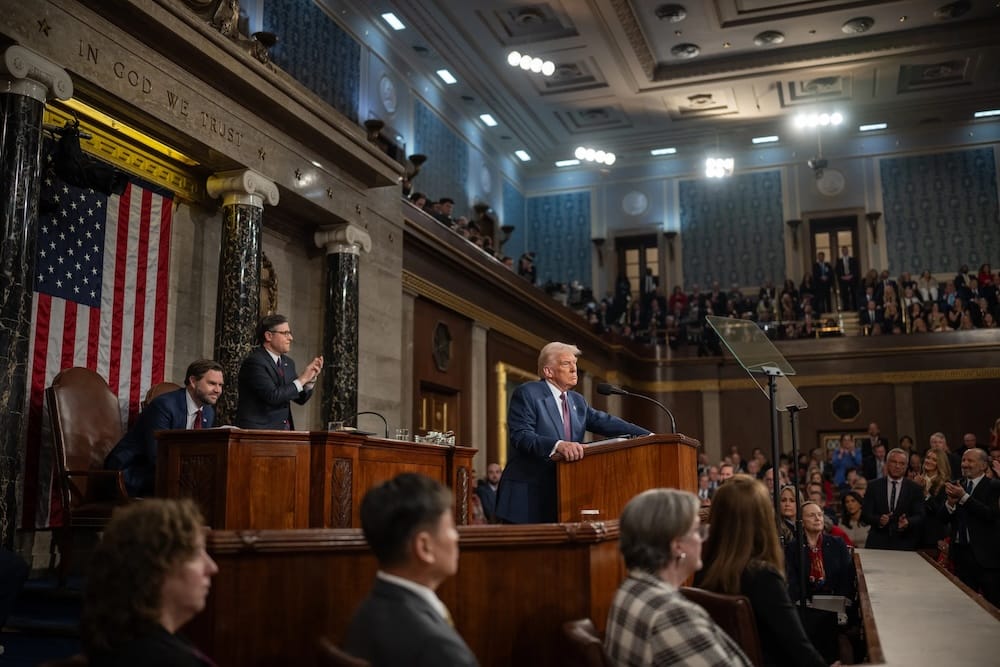

House Passes Sweeping Budget Bill
The House of Representatives passed President Donald Trump's massive budget reconciliation bill early on May 22, a significant achievement for both the president and House Speaker Mike Johnson. The legislation, dubbed the 'big, beautiful bill,' cleared the chamber with a narrow 215-214 vote, overcoming internal Republican divisions and Democratic opposition. The bill advances key priorities, including extending the 2017 tax cuts, strengthening border security, and reducing federal spending by approximately $1.5 trillion, addressing the nation's $36 trillion debt.
The vote followed intense negotiations, with only two Republicans, Reps. Thomas Massie of Kentucky and Warren Davidson of Ohio, voting against the measure. Rep. Andy Harris, leader of the House Freedom Caucus, voted present, while Reps. Andrew Garbarino and David Schweikert missed the vote but expressed support. Johnson described the effort as historic, stating, 'It quite literally is morning again in America,' emphasizing the bill's transformative potential.
Navigating GOP Challenges and Key Provisions
The path to passage was fraught with challenges, including a rebellion by fiscal conservatives like Reps. Chip Roy and Ralph Norman, who initially blocked the bill in the House Budget Committee. Last-minute changes, such as speeding up Medicaid work requirements from 2029 to 2027 and increasing the state and local tax (SALT) deduction cap, secured broader support. The bill also includes $12 billion to reimburse states for border enforcement costs and a ban on federal funding for transgender medical care, reflecting conservative priorities.
President Trump played a pivotal role, urging unity during a closed-door meeting with House Republicans on May 20. He directly addressed holdouts, telling Rep. Mike Lawler, 'I know your district better than you do. If you lose because of SALT, you were going to lose anyway.' These efforts, combined with Johnson's negotiations, ensured minimal defections. The legislation now heads to the Senate, where Republicans have signaled potential changes, particularly to Medicaid and SNAP cuts, before a final version can reach Trump's desk by the Fourth of July.
Impact on American Families and Economy
The budget bill aims to deliver substantial tax relief for American workers and small businesses by making the 2017 tax cuts permanent. It also allocates funds for military expansion and border security, aligning with Trump's campaign promises. Johnson highlighted the bill's economic benefits, noting, 'This is the vehicle through which we will deliver on the mandate the American people gave us during the last election.' The Congressional Budget Office projects the measure will increase the national debt by $2.3 trillion, a point of contention for some conservatives.
Despite the victory, the process revealed the delicate balance within the Republican Party. Johnson's ability to unify his caucus, coupled with Trump's direct engagement, proved critical. As the Senate prepares to review the bill, GOP leaders remain optimistic about finalizing a package that preserves these gains. The legislation represents a bold step toward reshaping federal policy, prioritizing economic growth and national security for American citizens.
Dues are $12 per year. Member benefits:
✅ Ad-Free Website Viewing
✅ Advocacy for Republican Seniors
✅ 120+ Senior Discounts
✅ Member Only Newsletters